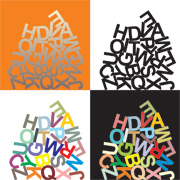The last time we met, I went off on a near-thousand-word tangent about how disturbing it was for me to come across perfectly beautiful websites with lousy copywriting. But that’s not all that’s wrong with the world, and although I hold no aspersions to being able to change everything (I’m just a copywriter, after all), I felt compelled to speak up. Again.

In my perusals of other people’s substandard web copy and lackluster content writing, I noticed a few other troubling details that I think point out perfectly the reasons why companies interested in actually using the internet to market their business (instead of simply building a cute website and calling it good) could do with hiring professionals to handle their web copywriting.
Point One: Frequency of Publication
A majority of company blogs are updated on an all too infrequent basis. This probably has everything to do with most businesses simply not having the time to get online and make the necessary updates. Which only serves to drive my point home: SEO copywriting requires thought, effort, research, and (dare I say?) a touch of literary ability. And that’s not something every company has the in-house resources for. The fact is, you can’t afford to lose the interest of potential customers by failing to publish regularly. When you don’t publish, people forget… and when people forget, they disappear. Hiring a third party company to frequently update your web copy, or an independent copywriter to handle all of your copywriting needs, isn’t a luxury, but an absolute necessity. And the best part? It doesn’t cost an arm and a leg, and companies that offer copywriting services aren’t that difficult to find. However, if you happen across a disheveled looking individual holding up a “Will Write For Money” sign on the side of the road, take their card and do your research before you hire them. A good quality copywriter should at least have a card, if not their own website.
Point Two: Readability
The advent of e-readers has shown us that there’s a huge audience for electronic media. Although I’m certain that a large percentage of the populous still prefers the physical manifestation of books, or magazines, or newspapers for their information, most companies can now feel comfortable in knowing that their blogs stand a chance of being widely read.
But only under one condition.
That they make their content readable. I’m not talking about high quality web copywriting that would make Shakespeare weep. I’m talking about making it physically readable. Which means doing away with frilly fonts and backgrounds you think might look cool, but only serve the purpose of making your web copy hard on the eyes. In general, it’s good to follow these points:
- Read the copy for yourself. Even if you committed the cardinal sin of not hiring a copywriter and you wrote the blog yourself, hop online once it’s been published and give it a thorough read. This serves the dual purpose of putting yourself in your audience’s shoes (a place that every website owner should go every once in awhile) and proofing for readability.
- If you find yourself squinting, or leaning in close to see the words, put on your glasses. If you’ve already got them on or don’t need glasses to read… you’ve got problems. Simply stated, if you want people to read your web copy you can’t make it hard on them. Which leads me to my next point.
- Make your fonts large enough to be read easily. Far too many websites have their text miniaturized, making reading a chore. The reading should practically do itself.
- Use the right type font. Sans serif fonts are far more easily read on a computer screen than serifs, which are slightly more “ornamental” in appearance. What works for print and physical advertising copy doesn’t work so well for online readers. Any good copywriter should be able to tell you this – even though it’s not his or her job to make stylistic decisions for you, but simply to provide good web copy.
- By far, the most readable copy is black text on a white background. Simple as a book, and maybe not as avant-garde or cutting edge as you would like – but if you’re paying for SEO copywriting you’d better make sure it’s getting read.
Without a doubt, the most important thing that all writers have to remember is: the reader. If you’re not doing that, even the best web copywriting in the world won’t get you an audience, or keep the one you’ve already managed to get.
Leave a Reply